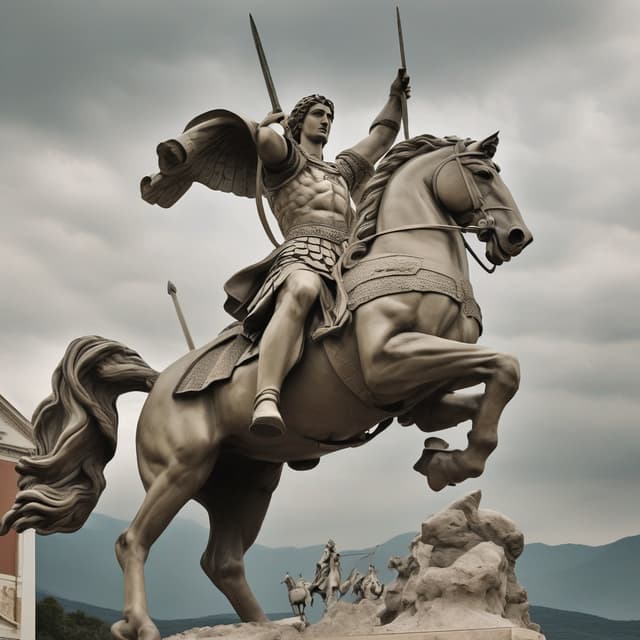
| Name | Macedonian Empire |
| Legacy | Left a lasting impact on the political, cultural, and economic landscape of the Mediterranean region |
| Period | 5th century BCE - 2nd century BCE |
| Founder | King Philip II |
| Emerged From | Macedonia, Northern Greece |
| Key Conquests | |
| Notable Ruler | |
| Cultural Impact | Adopted some Greek culture, but maintained distinct local traditions |
The Macedonian Empire was a vast ancient superpower that dominated the Mediterranean world and Near East during the 5th and 4th centuries BCE. Emerging from the northern Greek region of Macedonia, the Macedonians under the leadership of King Philip II and his son Alexander the Great rapidly expanded their control over Greece, Persia, and Egypt to create one of the largest empires of the classical era.
The origins of the Macedonian Empire can be traced to the early 5th century BCE, when the kingdom of Macedonia under King Amyntas I began asserting its power and influence over its Greek neighbors. Located north of the traditional Greek city-states, Macedonia had long been viewed as a culturally distinct and semi-barbarian region by southerners.
However, under a series of ambitious and militarily skilled kings, Macedonia rapidly modernized its army and political institutions. By 480 BCE, the Macedonian forces had defeated the Greeks at the Battle of Thermopylae, establishing the kingdom as a major regional power.
The Macedonian Empire truly rose to prominence under King Philip II (r. 359-336 BCE), who further reformed the military and bureaucracy while cunningly manipulating the rivalries between Greek city-states. By 338 BCE, Philip had conquered and incorporated the whole of Greece into his growing dominion.
Following Philip's assassination, his son Alexander the Great (r. 336-323 BCE) launched a vast campaign of expansion, decisively defeating the Achaemenid Persian Empire and establishing control over its vast territories. Alexander's armies marched as far as modern-day India before being forced to turn back.
By 323 BCE, at the time of Alexander's death, the Macedonian Empire stretched from modern-day Italy to Pakistan, making it one of the largest empires of the ancient world. Alexander's generals and family members struggled to maintain control over the unwieldy realm following his demise.
The Macedonian Empire was governed through a complex system of local satrapies (provinces) ruled by appointed governors, or satraps, who reported to the central Macedonian royal court. This allowed the empire to maintain control over diverse populations and territories.
While adopting some aspects of Greek language and culture, the Macedonians largely retained their own distinct Macedonian traditions and institutions. The imperial court, military, and bureaucracy remained predominately Macedonian in character, even as Greek ideas and practices spread through the conquered lands.
The Macedonian Empire began to fragment and decline in the 2nd century BCE, as rebellions, civil wars, and the rise of rival powers like Rome eroded central authority. By 146 BCE, the Macedonian heartland itself had been conquered and absorbed into the growing Roman Republic.
The remains of Alexander's empire were divided up among competing successor kingdoms, most notably the Seleucid Empire, Ptolemaic Egypt, and the Antigonid dynasty in Macedonia. These Hellenistic kingdoms perpetuated elements of Macedonian culture and administration but lacked the unity and power of the original empire.
Despite its relatively short lifespan, the Macedonian Empire left an indelible mark on the ancient Mediterranean world. Its conquest and blending of Greek, Persian, and Egyptian civilizations had a lasting impact on politics, culture, and economics in the region.
The spread of the Koine Greek language, Hellenistic art and architecture, and Hellenistic philosophy during the Macedonian era had profound and enduring effects. Elements of Macedonian governance, such as the use of satraps and imperial bureaucracies, were also adopted by later empires.
While the Macedonian state itself collapsed, its legacy lived on in the Hellenistic kingdoms that jockeyed for power in the centuries after Alexander. This Macedonian-Greek cultural fusion would continue to influence the rise of the Roman Empire and the development of early Christianity.